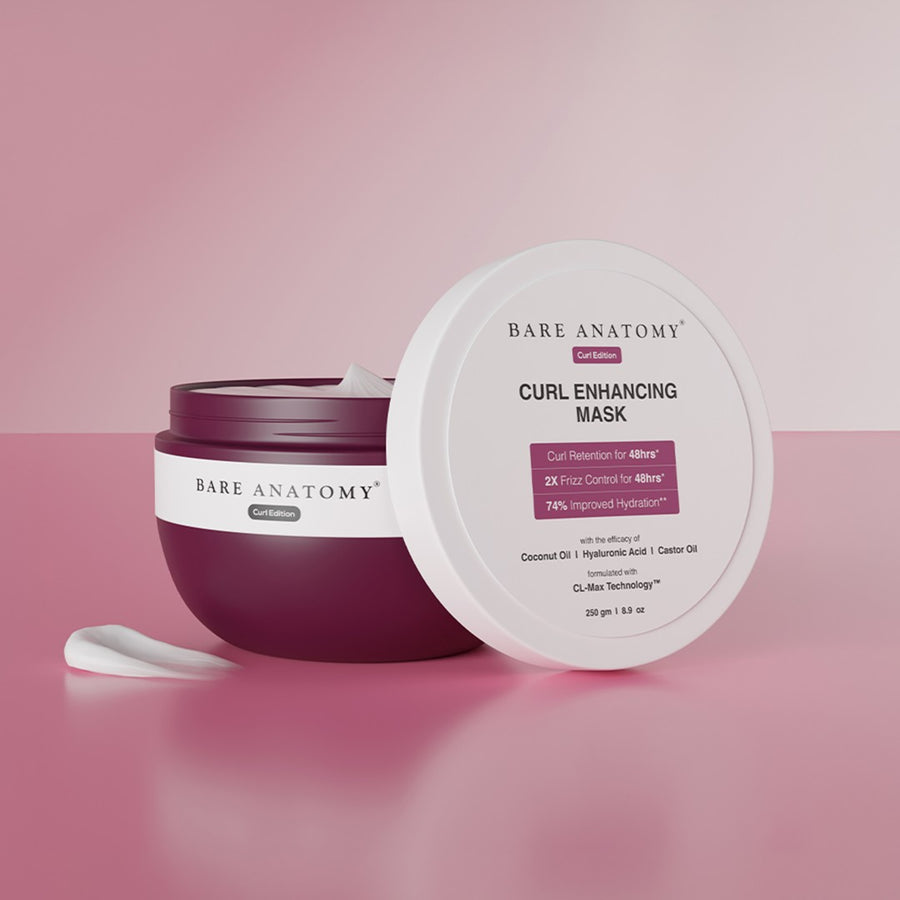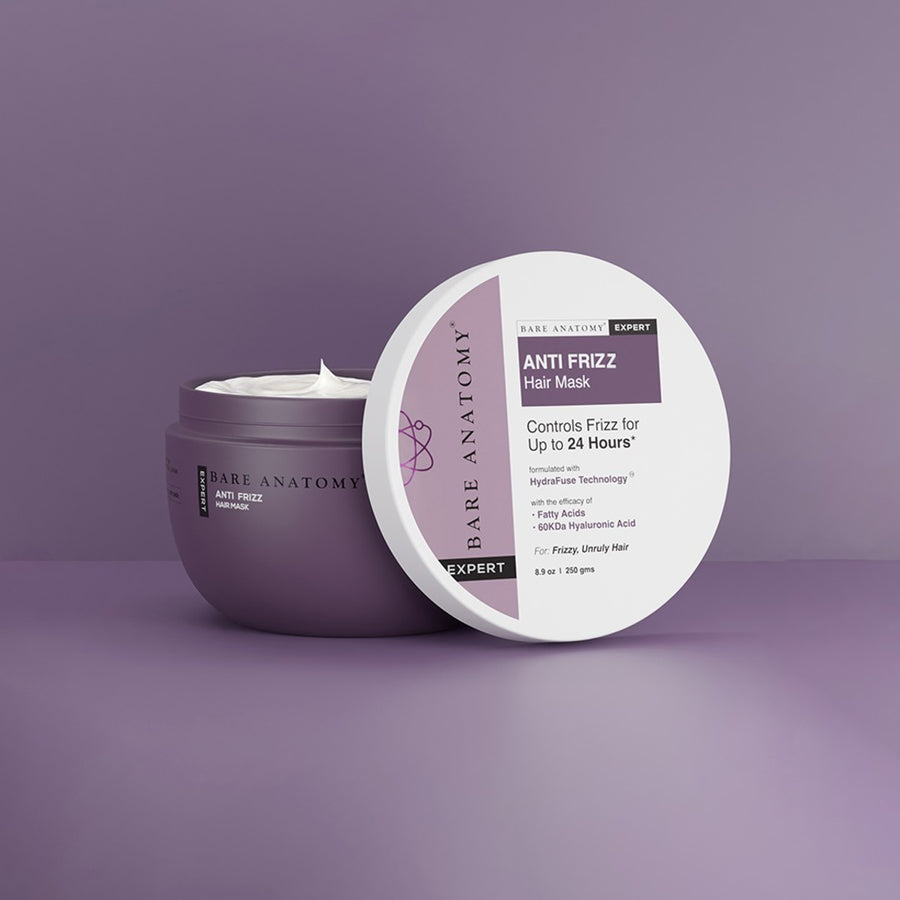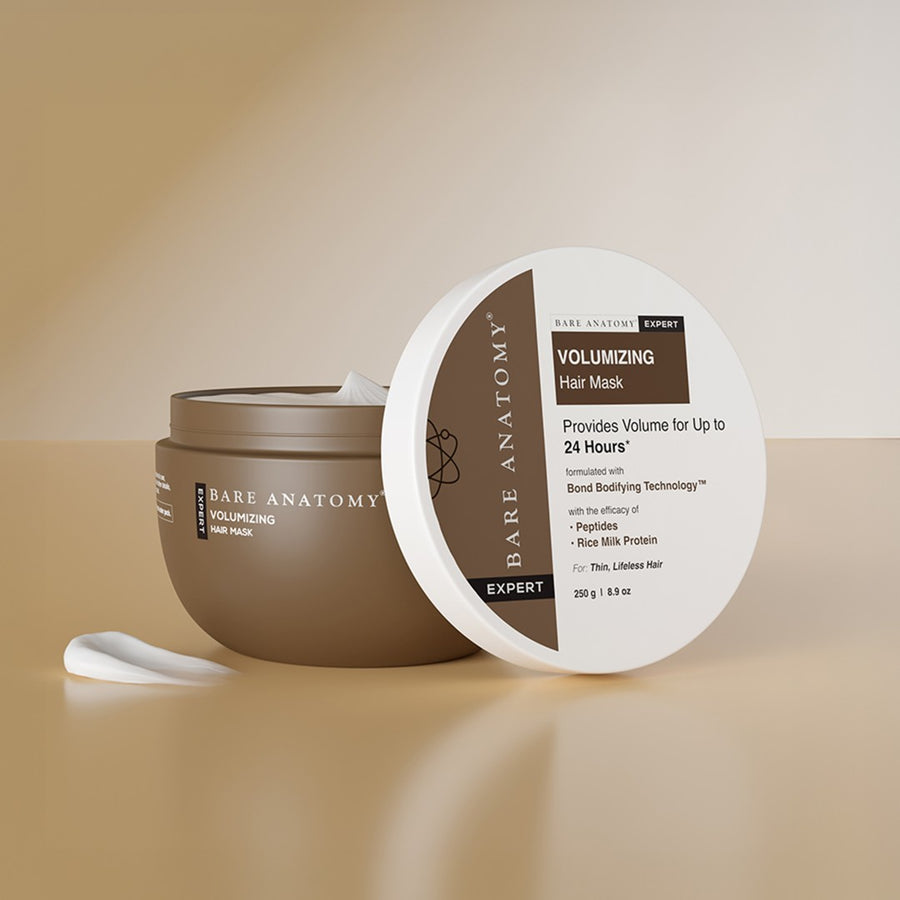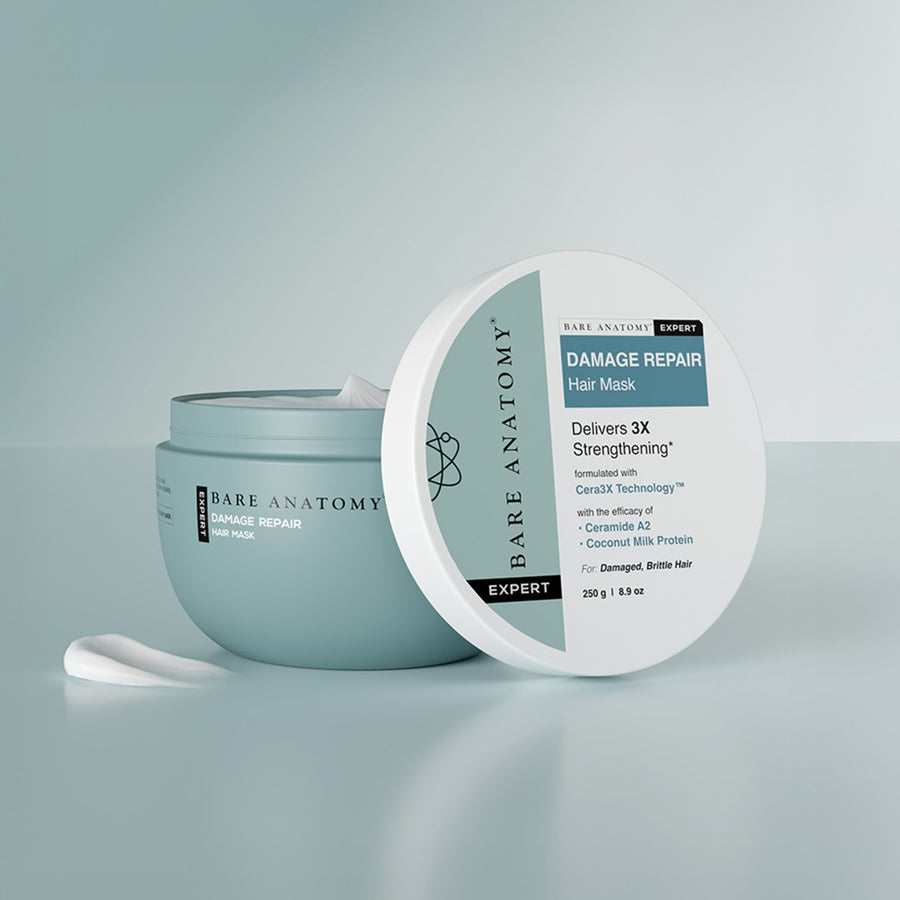
Hair Mask vs Hair Conditioner: Which One Does Your Hair Need?
Choosing between a hair mask and a conditioner can impact your hair health more than you expect. Whether you’re aiming for deep hydration, damage repair, or just day-to-day manageability, using the right products is very important to get the desired outcome.
While they might seem one and the same, a hair mask and conditioner serve different purposes, and it all comes down to how deeply they work on your strands. By understanding what your hair needs and when to use each, you can build a care routine that actually delivers visible results..
What Is Hair Mask?
A hair mask can be defined as a deep moisturizing & nourishing treatment that helps to combat specific hair concerns like dryness, breakage, or frizz. Depending on the formula, they help to repair internal damage, add extra smoothness, strengthen weak strands, and restore overall hair health with time.
The texture of a hair mask is thick, and the formula is packed with potent ingredients like proteins, ceramides, and natural oils. These actives penetrate the hair shaft more deeply than a regular conditioner, giving more concentrated results.
How to use:
- Apply a hair mask after shampoo
- Keep it on for at least 5 to 20 minutes
- Rinse thoroughly
👉 For best results, apply on damp, towel-dried hair

What Is a Hair Conditioner?
A conditioner is an essential post-shampoo product which helps with easy detangling, smoothing, and softening of hair lengths. The texture is lightweight and can easily be used every day or as per your requirement.
It is intended to immediately enhance hair manageability and decrease frizz by creating a protective layer on the surface of your hair. They’re ideal for maintaining hair health and locking in moisture between washes.
Using sulphate-free conditioner along with your shampoo for targeted concerns like hair fall & dandruff is truly helpful to get real and consistent results.
 How to use: After shampoo, apply a conditioner of your choice focusing on the mid-lengths and ends. Leave it on for 1–3 minutes, then rinse off. Do not apply directly to the scalp unless mentioned in the product use instructions.
How to use: After shampoo, apply a conditioner of your choice focusing on the mid-lengths and ends. Leave it on for 1–3 minutes, then rinse off. Do not apply directly to the scalp unless mentioned in the product use instructions.
Hair Mask vs Conditioner: A Quick Comparison
|
Feature |
Hair Mask |
Hair Conditioner |
|---|---|---|
|
Texture |
Thick and creamy |
Light and smooth |
|
Purpose |
Deep repair and nourishment |
Instant softness and manageability |
|
Penetration |
Penetrates deep into the hair shaft |
Coats the top surface of the hair |
|
Leave-on Time |
5–20 minutes |
1–3 minutes |
|
Frequency |
1–2 times a week |
After every shampoo |
|
Ideal For |
Dry, damaged, frizzy, or chemically treated hair |
All hair types for daily care |
|
Results |
Long-term strength and hydration |
Softness and frizz control after each wash |
When Should You Use a Hair Mask?
A hair mask is like a reset button for your hair. Use it when your hair needs extra care for dry or damaged strands. For example:
-
Post heat styling or chemical treatments
-
When your hair feels brittle, rough, or extremely frizzy
-
During seasonal changes or after sun/salt/chlorine exposure
✅Routine flow for hair mask -
Pre-wash treatment → Shampoo → Hair Mask → Rinse → Style
 When Should You Use a Conditioner?
When Should You Use a Conditioner?
Use a conditioner after each wash, no exceptions. It seals in moisture, minimizes breakage, and makes your locks easier to detangle after washing. It's an important step for all hair types to minimise frizz and flyaways and keep hair soft between deep treatments.
✅Routine flow for conditioner -
Pre-wash treatment → Shampoo → Conditioner → Rinse → Style
Pro-tip
Use Advanced Hair Growth Serum or lightweight oils for pre-wash treatments. Also, after washing your hair (with both hair mask and conditioners), use post-wash treatments like serums, leave-in conditioners, or hair mists to lock in your results.
How to use Hair Mask and Conditioner Together?
Both Hair masks and conditioners should be part of your routine, but not in the same wash. They each have different functions, and using them correctly ensures that your hair gains the best results.
Here are a few options you can try:
✅Option 1: Alternate Between Wash Days
- Apply conditioner on regular wash days for instant softness and detangling.
- Use a hair mask 1-2 times a week for more intensive repair and moisture.
✅Option 2: In the Same Routine
- After Shampoo, apply a hair mask and leave it on for a while.
- You can also wrap your hair in a hot towel to help the mask deeply moisturize your hair.
- Then, after washing it off, apply a lightweight conditioner (try a leave-in treatment) to lock the benefits in and soften the cuticle.
👉Pro Tip: Do this double-treatment approach occasionally (once a month) so the products do not clog the pores.
Best Hair Mask & Conditioner Recommendations by Innovist
Bare Anatomy, powered by Innovist, has a wide range of hair masks and conditioners in its extensive haircare collection. Backed by science and created by experts, we bring to you a full range of products catering to different hair & scalp concerns.
Our Ultra-Smoothing Hair Mask is a consumer favourite when it comes to salon-smooth hair results at home.
Our Anti-Dandruff Conditioner & Anti-Hair Fall Conditioner are targeted care options for the most common hair concern in our country.
Whether you’re looking for hydration, repair, volume, or frizz control, Bare Anatomy hair masks & conditioners cover all of them. They are all sulphate-free, dermatologically tested, and safe for all hair types.
Conclusion
At the end of the day, it's not about hair mask vs conditioner, but understanding your hair needs and choosing the products that work best for you.
Experimenting with different options will bring you closer to your ideal hair care routine. So, keep going.
Confused about other parts of your hair routine? Explore The Complete Guide to Using Hibiscus for Hair and more.


































